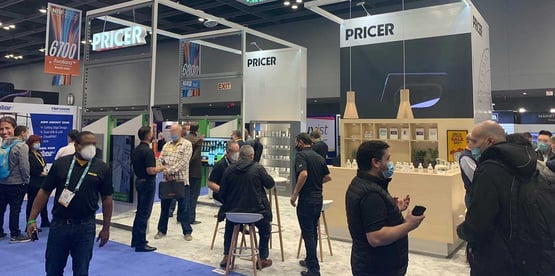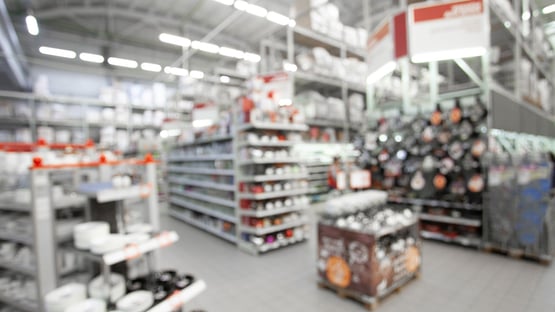While numbers were way down and retailer presence was dominated by smaller brands, It was obvious from day one that all the attendees were very happy to be back after a gap of two years. And who can blame them; in the interim, the market changed, so everyone was desperate for some kind of touch in to discover if what they were seeing was real or just a trick of the social media post.
It’s real – the consumer now looks beyond its chosen retailers as simple providers of products, to much deeper value around civic and planetary responsibility, health through ingredients and respect for other human beings through sourcing and production techniques. At the show, retailers wanted to talk tech of course, but in the context of values.
They also wanted to talk about how to meet the needs of a consumer that already had a reputation for being fickle, demanding and informed, but who know had dramatically changed their behaviours as a result of being confined to barracks. McKinsey revealed the full picture in its latest research to show that the reduction in the consumption of food away from home had fallen 16.8% had not yet fully recovered, while food at home expenditure had gone up 8.7%.
Looking deeper, more people had simply decided to retire, up 7% between Jan 2020 and Oct 2021, while socially conscious consumers emerged as a real force - 72% of millennial parents stay loyal to brand/store that promote Environment, Social, Governance (ESG) practices. In addition, consumers are more value conscious and will look for low prices, and yet are also eating more healthily, which often carries a price premium.
At the same time, grocers have seen a 58% rise in their online channel between 2019 and 2021. At NRF 2022, the retailers talked about how to square a circle – how to catch up to this new consumer whose behaviours are clearly stressing existing retail strategies in terms of labour deployment, in store processes, fulfilment, forecasting and replenishment, supply chain, just a few challenges on a very long list.
Tech solutions of particular interest turned out to be those that enable the store to see and act more swiftly and accurately based on what it can measure at the shelf edge. Notably, predictive analytics to improve availability, computer vision to continuously monitor store and shelf status and electronic shelf-edge labels that can turn observation into actions to match demand to optimal prices and better promotions performance.
A more responsive shelf chimes with what McKinsey had to say about consumer shopping needs in store and how to address them - 45% of consumers will look for ways to save money when grocery shopping; 29% will be actively looking for promotions; 39% plan on focusing more on healthy eating and nutrition;36% plan to increase spending on naturally healthy products. And remember that this is a consumer that expects a consistent omnichannel experience, however they decide to engage, so the traditional price label has morphed into a customer engagement opportunity by displaying more information (now that four colour is now available) and monitoring that engagement so changes can be made over time. By partnering with organizations like Novisign this is now capable of being linked seamlessly with digital signage so that messages to consumers are clear, compelling and consistent.
As a result, omnichannel is now described as table stakes with customers, and is dictating the kinds of tech showing the biggest interest at NRF going forward. Almost all retailers are reskilling their workforce to serve the new consumer and equipping them with tech that will automate many of the tasks that do not currently add any value to the customer journey. This is not just in store but online and for order fulfilment, hence the interest at NRF in partnerships with third parties who can manage click and collect, marketplace management, pick to light, sub 30 minute delivery – and of course the tech that will enable the retailers to drive efficiencies, get greater reach and cut costs.
But all this focus on efficiency did not avoid the problem of waste and we have partnered with Whywaste recently to equip stores with digital tools to cut time taken to monitor expiration dates, register products for food safety compliance and digital tools to ‘market’ soon to expire products to consumers that are also committed to reduce waste.
At NRF 2023, which you are sure not to miss, we are certain to see more of this type of transformational thinking.
Published on February 1st, 2022



